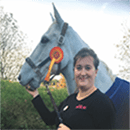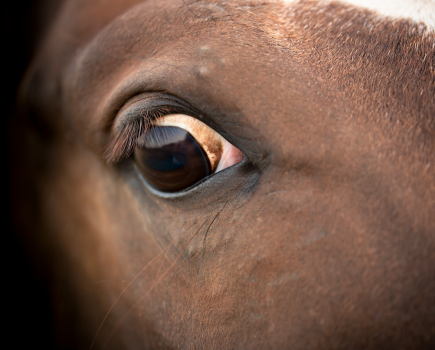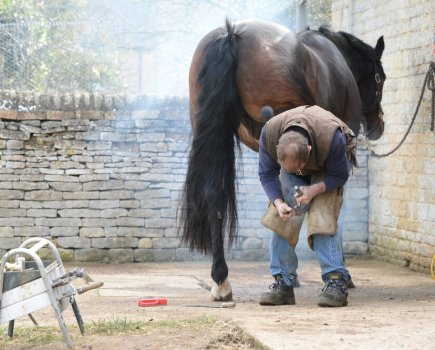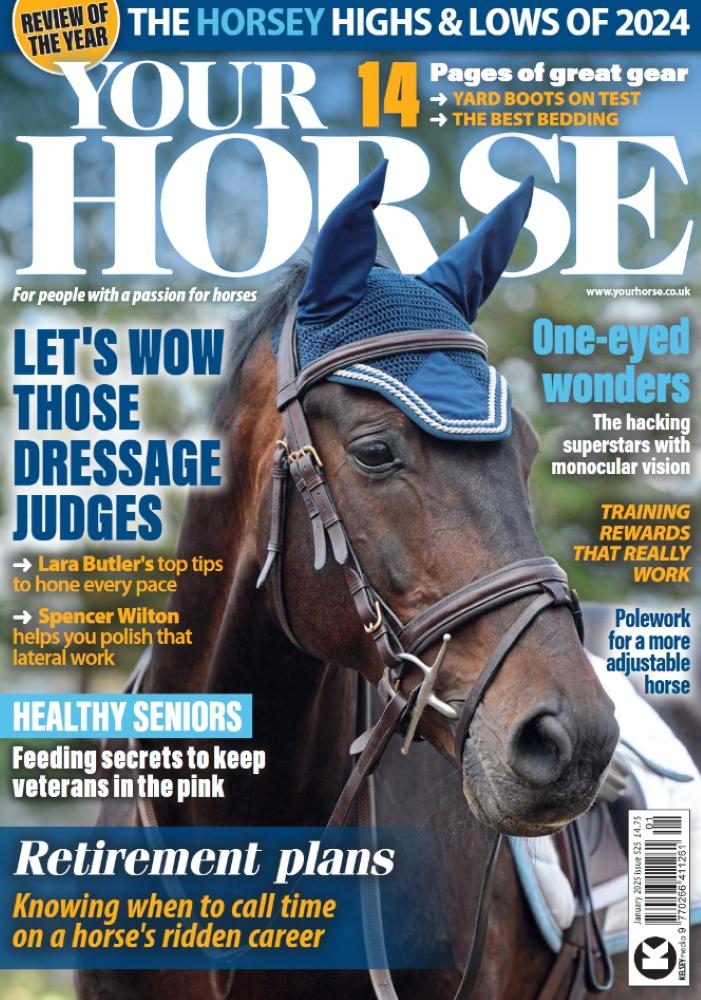Just like people, horses can be sleep deprived too — yes, really — and it hugely influences a horse’s behaviour, mental health and overall wellbeing. Sleep deprivation isn’t anything new in the horse world, but for years, it was wrongly diagnosed.
“The main issue we see with horses who suffer from sleep deprivation is that they demonstrate characteristic clinical signs that for many years was incorrectly identified as narcolepsy — that is, a horse falling asleep on its feet,” explains vet Mike Hewetson.
Narcolepsy vs sleep deprivation: what’s the difference?
“Narcolepsy is a clinical disease which causes horses to collapse into a cataleptic state where they are completely relaxed but collapsed on the ground. Sleep deprivation collapse in horses is a little different in that they will be standing tied up and their heads will slowly drop, like they have been sedated, and they get to a point where they start to buckle with their forelimbs,” continues Mike.
“It’s usually at this point, just before their knees hit the ground, that they wake themselves up out of that state, like someone falling asleep at the wheel when they are driving. When they are really tired, they actually collapse into REM sleep, and that’s when horses can seriously injure themselves.”
This is the description vets often get when being called out to horses who have strange, unexplained injuries to their knees, lower limbs and head.
“These signs are often related to sleep deprivation,” adds Mike.
How much sleep do horses need?
Horses are like other species and they don’t need a lot of sleep. Their sleep is divided up into three types:
- The first state of sleep is a snooze-type sleep;
- The secondary sleep is a true sleep, but it’s not Rapid Eye Movement (REM) sleep;
- Stage three is REM sleep.
“A horse can do type one and type two sleeping standing up, but in order for a horse to have REM sleep, which is stage three sleep, they have to lie down because by definition it involves complete relaxation,” explains Mike.
A study in the 80’s worked out that horses need two to three hours of sleep a day, and of that they need at least half an hour to an hour’s worth of REM sleep which can only take place when the horse is lying down.
What causes sleep deprivation in horses?
1 Pain
“A common reason for horses to suffer from sleep deprivation is that they have pain or lameness that makes it uncomfortable for them to lie down or makes it difficult for them to go through the process of getting up and down,” says Mike. “As a result, they are unlikely to lie down, so they become exhausted.
2 Stable/living area is too small or uncomfortable
“The other aspect is the management of the horse itself such as a stable that is too small for them meaning they can’t get down or back up again, or where there is not enough bedding and it’s not comfortable.
3 Horse cannot completely relax
“Another very common cause is horses who are fearful or uncomfortable in an environment such as a horse being bullied in the herd or one that doesn’t like being stabled and therefore doesn’t feel safe to lie down,” continues Mike. “Horses expose themselves when they lie down, so they need to feel in a safe environment to do that.”
4 Individual preferences are not being met
Just like people, horses are individuals and will have different sleep requirements, so knowing what is ‘normal’ for your horse is key.
“Just because a horse is not sleeping for a certain period of time, it doesn’t mean it has a problem – we don’t want people to overreact,” adds Mike.
“Often people can monitor it themselves by looking for signs that their horse has lied down, such as flat bedding in the stable. If you never see your horse lying down, it might be worth investigating further.”
It’s important to look for those subtle signs of a horse who is suffering from sleep deprivation such as scuff marks on the lower limbs particularly the knees and head which indicate a horse has potentially collapsed in the stable.
“If you suspect your horse is suffering from a lack of sleep, assess their environment – some horses prefer to be out in the field in a herd to lie down, whereas others prefer the safety of a stable to lie down,” advises Mike. “Once you know the cause, you can attempt to address it.”
Main image credit: copyright Shutterstock










